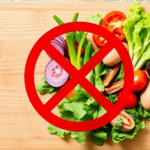Can You Survive (or Lose Weight) on Just Bread and Water?
When considering whether you can survive or even lose weight solely on bread and water, it’s essential to understand both the nutritional aspects of this diet and the body’s needs. The idea of subsisting on just these two staples raises numerous health questions. Even though bread can provide carbohydrates and energy, is it truly sufficient for long-term health and sustainable weight loss?
Firstly, let’s look at what bread offers. Most bread, especially whole grain varieties, provides:
- Carbohydrates: The body’s primary energy source.
- Fiber: Important for digestive health and feeling full.
- Certain vitamins: Many breads contain B vitamins, which help in energy production.
- Protein: While not a complete protein source, bread does contribute to daily protein intake.
Now, let’s consider water. Water is crucial for nearly every function in your body, including digestion and regulating body temperature. However, when relying solely on bread and water, you miss out on essential nutrients, vitamins, and minerals found in fruits, vegetables, and proteins.
According to nutritionists, surviving on just bread and water for a few days might be feasible, but going beyond that can lead to significant nutrient deficiencies. This is especially true for:
- Vitamins A, C, D, E, K: Vital for immune function, skin health, and vision.
- Minerals: Calcium, iron, potassium, and magnesium are important for bone health, energy production, and more.
- Healthy fats: Necessary for hormone production and brain function.
With a diet so low in variety, individuals may experience fatigue, weakness, and other health issues. Lack of protein can lead to muscle loss, while inadequate fat intake may cause skin problems and hormonal imbalances.
For those interested in weight loss, understanding caloric intake is essential. Bread does provide a source of energy; however, the quantity and type of bread consumed play a critical role in weight management. For instance, two slices of whole-grain bread may contain approximately 160 calories, while white bread may contain similar calories but with less nutritional value.
| Type of Bread | Calories (2 slices) | Fiber (g) |
|---|---|---|
| Whole Wheat | 160 | 6 |
| White Bread | 160 | 2 |
| Sourdough | 150 | 1 |
So can you lose weight on a diet of just bread and water? In the short term, yes, due to caloric restriction. However, this method is neither healthy nor sustainable. Weight loss should focus on a balanced approach that includes a variety of food groups. Relying heavily on bread and water may lead to short-term weight loss, but it’s likely to also include a host of negative side effects.
If you are considering a low-calorie diet or extreme methods for weight loss, it’s essential to consult with a healthcare professional. They can provide guidance tailored to your individual health needs.
For sustainable weight loss, focus on a balanced diet that includes:
- Fruits and vegetables: Provide essential vitamins and minerals.
- Lean proteins: Such as chicken, fish, beans, and legumes for muscle maintenance.
- Healthy fats: Like avocados, nuts, and olive oil for overall health.
While you might technically survive on a diet of just bread and water, it’s neither healthy nor recommended. Instead, we should aim for a diverse range of foods that support not only weight loss but overall health. For more detailed information and guidance on healthy eating practices, consider visiting Eat Right or Harvard Health Nutrition Source.
The Nutritional Impact of a Bread and Water Diet
Many people consider drastic diets for various reasons, including weight loss and cleansing. One of the most extreme methods that some pursue is a diet consisting solely of bread and water. While it may seem straightforward, the nutritional impact of such a diet can be profound.
Nutritional Composition of Bread
To understand the nutritional impact, it’s essential to analyze what bread provides. Bread is primarily made from flour, water, yeast, and salt. Here’s a quick breakdown of the macronutrients found in an average slice of whole grain bread:
| Component | Amount (per slice) |
|---|---|
| Calories | 70-80 |
| Carbohydrates | 12-15 grams |
| Protein | 2-3 grams |
| Fat | 1 gram |
| Fiber | 1-2 grams |
While bread serves as a source of energy due to its carbohydrate content, it also has limitations. The protein and fat content are insufficient to meet daily needs, especially over extended periods.
The Role of Water
Water, on the other hand, is crucial for survival but does not provide any calories or essential nutrients. Staying hydrated is vital for various bodily functions, including digestion, temperature regulation, and nutrient absorption. When consuming only bread and water, you might meet your hydration needs, but the lack of essential nutrients can lead to numerous health issues.
The Short-Term Effects of a Bread and Water Diet
Initially, you may experience rapid weight loss when adopting a bread and water diet. This loss comes primarily from water weight and reduced calorie intake. However, this is not sustainable. The following effects are common in the short term:
- Fatigue: With limited energy from carbohydrates, you might feel tired and lethargic.
- Dizziness: A lack of essential nutrients can cause dizziness and low energy levels.
- Weight Loss: Initial weight loss may occur, but it can be mostly water weight.
The Long-Term Consequences
Over time, relying solely on bread and water can lead to severe nutritional deficiencies, including:
- Protein Deficiency: Inadequate protein can cause muscle loss and impaired body functions.
- Vitamins and Minerals Deficiencies: Missing out on fruits, vegetables, and proteins can lead to deficiencies in vital vitamins and minerals, such as Vitamin C, iron, and calcium.
- Digestive Issues: An overly high-carb diet with insufficient fiber can lead to constipation and other digestive problems.
Potential Mental Health Effects
The psychological toll of adhering to such a restrictive diet should not be underestimated. You may encounter mood swings, irritability, and an increased focus on food, which could lead to unhealthy eating behaviors in the future. Nutritional balance is crucial for both physical and mental well-being.
Alternatives to Consider
If you’re considering weight loss through dietary changes, it’s essential to choose a plan that includes a wide variety of nutrients. Here are some healthier alternatives:
- Balanced Diet: Include protein sources, fruits, vegetables, and healthy fats.
- Portion Control: Eating smaller portions of a balanced diet can still help reduce overall calorie intake.
- Consult a Professional: Before starting any new diet, consider talking to a healthcare professional or a registered dietitian for personalized advice.
While a bread and water diet may lead to short-term weight loss, the long-term consequences can be significantly harmful. It’s crucial to ensure your body receives the nutrition it needs to function effectively and stay healthy.
For further reading on nutrition and healthy diets, you can visit Eat Right or Nutrition.gov.
Health Risks Associated with a Restricted Diet
A restricted diet can seem tempting for those looking to lose weight quickly or improve their health. However, focusing solely on a limited range of foods can carry significant health risks. Let’s explore some of these risks and consider the implications of such dietary practices.
Potential Nutrient Deficiencies
One of the primary dangers of a restricted diet is the likelihood of developing nutrient deficiencies. When you limit your food choices, it can lead to insufficient intake of essential vitamins and minerals. Some common nutrient deficiencies include:
- Vitamin B12: Important for nerve health and blood cell production, found mainly in animal products.
- Iron: Vital for oxygen transport in the blood; found in red meats, beans, and fortified cereals.
- Calcium: Crucial for bone health, primarily sourced from dairy products.
- Vitamin D: Supports bone health and immune function, often gained from sunlight or fortified foods.
When you miss out on these nutrients, your body may experience fatigue, weakened immune function, and other health complications.
Negative Impact on Metabolism
Restricting your diet can slow down your metabolism. Your body will begin to adapt to a lower caloric intake, making it harder to lose weight over time. The process is known as metabolic adaptation, where your body becomes more efficient at utilizing energy. This can lead to:
- Increased hunger signals, making you feel more inclined to overeat later.
- Lower energy levels, which can affect your everyday activities and workouts.
As a result, long-term weight loss can be challenging, making it important to focus on a balanced diet that supports a healthy metabolism.
Increased Risk of Eating Disorders
Engaging in a restricted diet can heighten the risk of developing eating disorders. Diets that emphasize severe restrictions may contribute to unhealthy relationships with food, potentially leading to conditions such as:
- Anorexia nervosa: A condition characterized by an intense fear of gaining weight and excessive restriction of food intake.
- Bulimia nervosa: Involves binge eating followed by compensatory behaviors such as vomiting or misuse of laxatives.
- Binge eating disorder: Characterized by compulsive overeating without the subsequent purging behaviors.
Addressing these issues early is crucial for long-term well-being. Instead of severe restrictions, focusing on moderation and balance is more helpful.
Impact on Mental Health
The psychological effects of a restricted diet can be profound. Nutrition plays a significant role in mental health. A limited diet can lead to:
- Anxiety: Can stem from constant calorie counting or fear of consuming certain foods.
- Depression: Low energy levels and nutrient deficiencies can contribute to feelings of sadness and lethargy.
- Food obsession: The more you restrict, the more you might think about forbidden foods, leading to unhealthy patterns.
Hence, a balanced approach to nutrition not only supports physical health but also contributes to mental well-being.
Social and Lifestyle Consequences
Adhering to a restricted diet may also affect your social life and lifestyle choices:
- Social Isolation: You may avoid gatherings where food is present if your diet restricts certain items.
- Lack of Variety: Consuming a narrow range of foods may become boring or unappealing.
- Overall Enjoyment: Eating is often associated with pleasure and enjoyment, and strict limitations can take away from that experience.
Finding pleasure in a diverse diet allows for social interaction and enhances the food experience, thus leading to a more fulfilling life.
on Embracing a Balanced Diet
Choosing to restrict your diet can seem attractive, but such choices can lead to various health risks, including nutritional deficiencies and psychological impact. For a healthier approach, consider focusing on eating various foods that promote overall health rather than limiting yourself excessively.
For more insights on balanced nutrition, visit Eat Right or read about proper dietary practices on NCBI.
By making informed decisions about your diet, you can support your long-term health and well-being.
Historical Examples of Bread and Water Diets
Throughout history, the bread and water diet has served various roles, from spiritual purification to sheer necessity in times of famine. This simplistic diet raises many questions about its effects and implications, often suggesting both physical endurance and mental resilience. Here are some historical examples that showcase different contexts in which people have adhered to a diet of just bread and water.
Fasting in Religious Traditions
Many religious traditions have recognized the practice of fasting, often incorporating bread and water as staple elements. This form of self-denial is seen as a way to cleanse the body and spirit. Some examples include:
- Christianity: Various Christian denominations include fasting practices where adherents consume bread and water during the Lenten season. This is meant to symbolize sacrifice and self-discipline.
- Judaism: On Yom Kippur, the Day of Atonement, Jews fast from sundown to sundown, often consuming only bread and water beforehand as a way to prepare for the spiritual cleanse.
- Islam: During Ramadan, Muslims fast from dawn until sunset. While the diet includes more than bread and water, some choose to begin their day with these simple staples as a means of embracing humility.
Historical Figures and Their Experiences
Certain historical figures resorted to bread and water for various reasons, highlighting the human aspect of adversity and endurance.
- Prisoners of War: Many captured soldiers throughout history were given minimal rations during their incarceration. Bread and water only diets became a grim reality during World War I and II, illustrating the resilience of those who survived these harsh conditions.
- Saints and Hermits: Figures like St. Francis of Assisi are said to have thrived on a diet of bread and water while living in isolation to focus on spirituality. This allowed them to embrace simplicity and poverty, aligning with their religious convictions.
Survival Situations
In dire circumstances, individuals have defaulted to a bread and water diet for survival. This simple menu has been recorded in various critical situations:
- The Great Famine: During the Great Famine in Ireland (1845-1852), many resorted to eating whatever they could find, with bread and water providing a temporary relief in times of extreme scarcity.
- The St. Elmo’s Fire Incident: Survivors of shipwrecks and disasters have circulated stories of consuming only bread and water until rescue. This was seen during tragedies like the wreck of the Titanic.
Calories and Nutritional Analysis
For those contemplating a bread and water diet, it’s important to understand the nutritional implications of such a diet. A standard loaf of white bread contains approximately:
| Nutrient | Amount per Slice | Total for 10 Slices |
|---|---|---|
| Calories | 80 | 800 |
| Carbohydrates | 15g | 150g |
| Protein | 2g | 20g |
| Fats | 1g | 10g |
This table illustrates a general overview of the caloric intake from bread alone, emphasizing the lack of essential nutrients typically required for a balanced diet.
Modern Examples and Controversies
The modern interpretation of a bread and water diet has emerged primarily as a dietary challenge or temporary weight loss strategy. However, these approaches are controversial and often criticized by nutritionists. Recent online challenges, for example, have led individuals to attempt living solely on bread and water for specific durations to ‘cleanse’ their bodies.
For more insights into historical dieting practices and their relevance today, you can explore the [BBC Good Food](https://www.bbcgoodfood.com) website for nutritional information.
Regardless of the context—be it a necessity or a spiritual exercise—the bread and water diet is a remarkable aspect of human history, reflecting resilience, survival, and the quest for meaning even in the smallest of meals.
Alternatives to Bread and Water for Weight Loss
When it comes to weight loss, many people seek out simple diets that can deliver quick results. While bread and water may come to mind, there are far more nutritious and enjoyable alternatives available to reach your weight loss goals. Exploring these options can help you create a sustainable and healthy eating plan.
Colorful Vegetables
Vegetables are a crucial component of any weight loss journey. They are low in calories, packed with vitamins, and high in fiber. a variety of colorful vegetables in your meals can keep you full and satisfied. Consider including:
- Spinach: Rich in iron and vitamin K.
- Bell Peppers: High in vitamin C and antioxidants.
- Carrots: Fantastic for eye health and low in calories.
- Broccoli: Contains protein, fiber, vitamins C and K.
Whole Grains
If you’re looking for substitutes for bread, consider other whole grains. They provide complex carbohydrates and various nutrients. Here are some great options:
- Quinoa: A complete protein and gluten-free option.
- Brown Rice: A fiber-rich grain that helps with digestion.
- Farro: An ancient grain packed with fiber and nutrients.
- Oats: They help regulate blood sugar levels.
Protein Sources
Protein is essential for weight loss as it helps to build muscle while keeping you full longer. Some excellent protein sources to consider are:
- Lean Meats: Chicken, turkey, and fish are great options.
- Legumes: Lentils, chickpeas, and beans provide protein and fiber.
- Eggs: Packed with nutrients and very versatile.
Healthy Fats
Healthy fats into your diet can aid in weight loss by enhancing satiety. These fats are crucial for hormone production and absorbing nutrients. Here are a few sources:
- Avocados: Full of fiber and potassium.
- Nuts: Almonds, walnuts, and pistachios maintain brain health.
- Olive Oil: Great for salads and cooking; rich in monounsaturated fats.
Fruits
Fruits are not only delicious but also provide vital nutrients and fiber. Here are some fruits that can help you lose weight:
- Berries: Blueberries, strawberries, and raspberries are antioxidants rich and low in calories.
- Apples: They are filling and have high water content.
- Citrus Fruits: Oranges and grapefruits can boost metabolism and have high vitamin C content.
Hydration Alternatives
Staying hydrated is crucial while aiming for weight loss. Instead of just plain water, you can explore healthier hydration alternatives:
- Herbal Teas: They can provide antioxidants and a variety of health benefits.
- Coconut Water: A natural way to replenish electrolytes.
- Infused Water: Adding fruits or herbs can enhance flavor without adding calories.
Curated Resources
If you want to dive deeper into weight loss tips and healthy eating habits, here are some reputable sources:
- MyFitnessPal – A fantastic app for tracking food intake and exercise.
- Academy of Nutrition and Dietetics – Offers nutritional advice and resources.
- NHLBI’s We Can! – Provides healthy eating tips targeted towards maintaining a healthy weight.
By embracing these alternatives to bread and water, you can enjoy a varied diet while effectively working toward your weight loss goals. Remember, the key to successful weight loss is not just about restriction but finding nourishing foods that satisfy your cravings and keep you energized.
The Psychological Effects of Extreme Dieting
Extreme dieting can lead to more than just physical changes; it can significantly impact your mental health and overall well-being. The psychological effects of such drastic measures often go unnoticed, yet they play a crucial role in understanding the full scope of dieting. When embarking on extreme dieting, individuals may encounter a range of emotional and mental challenges that can affect their daily lives.
Emotional Distress
Extreme dieting often comes with a high level of emotional distress. Many individuals may experience:
- Anxiety: The pressure to adhere strictly to a diet can cause heightened levels of anxiety. Fear of failure or fear of not achieving desired results is common.
- Depression: The prolonged restriction of food intake can lead to feelings of sadness and hopelessness. This emotional state can be exacerbated by social isolation as well.
- Obsessive Thoughts: Many individuals find that their thoughts about food become obsessive. Constantly thinking about when and what to eat can take a toll on mental health.
Impact on Self-Esteem
Extreme dieting can significantly affect self-esteem and self-image. Many individuals begin their journey with the hope of improving their appearance, but the pressure to achieve perfection can backfire.
- Negative Body Image: While some may initially feel empowered by their dieting efforts, constant comparison to unrealistic standards can lead to a negative body image over time.
- Feelings of Guilt: Indulging in “forbidden” foods can lead to feelings of guilt and shame, creating a vicious cycle of dieting and binging.
Social Effects
Extreme dieting can also have social consequences. Restrictive eating often leads individuals to avoid social gatherings where food is central to the activity, such as parties or family dinners. This can lead to:
- Isolation: Avoiding social situations can increase feelings of loneliness. Friends and family may not understand the reason behind these choices, further alienating the dieter.
- Strained Relationships: Interactions with loved ones may become tense as individuals struggle to balance their diet goals with social expectations.
Risk of Eating Disorders
The psychological effects of extreme dieting can spiral into more severe mental health issues, including eating disorders. Common disorders to be aware of include:
- Anorexia Nervosa: Characterized by extreme restriction of food intake, leading to significant weight loss.
- Bulimia Nervosa: Involves cycles of binging followed by purging, often leading to severe physical and emotional consequences.
- Binge Eating Disorder: A compulsion to eat large quantities of food, often associated with anxiety and depression.
Long-Term Psychological Challenges
Engaging in extreme diets can produce lasting psychological challenges. People may find it difficult to maintain a healthy relationship with food after dieting, leading to:
- Fear of Food: Some individuals develop an unhealthy fear of food, believing that certain foods will lead to weight gain.
- Yo-Yo Dieting: The cycle of losing and regaining weight can lead to frustration and a feeling of failure.
Coping Strategies
Understanding the psychological effects of extreme dieting is essential for anyone considering such a path. Here are some coping strategies to mitigate potential risks:
- Practice mindfulness and self-compassion. This can help in developing a healthier relationship with food.
- Seek support from friends or a professional. Counseling or dietitian guidance can provide much-needed help.
- Set realistic goals that focus on health rather than appearance. This can promote a more positive mindset.
For those interested in the psychological aspects of dieting and how to create healthier eating patterns, websites like Eat Right and National Eating Disorders Association offer valuable resources and insights.
Ultimately, while the desire to lose weight can be strong, it’s vital to approach dieting in a balanced and mindful manner. Understanding the psychological effects involved can lead to healthier choices and a more positive relationship with food.
Expert Opinions on Short-Term Fasting and Dieting Methods
Short-term fasting and specific dieting methods have gained immense popularity, especially in recent years. As more people seek effective ways to lose weight, enhance their health, and boost their energy, various expert opinions have emerged on the subject. Understanding these perspectives can help you make informed choices in your dietary habits.
Understanding Short-Term Fasting
Short-term fasting refers to limiting food intake for a specific period, which can range from several hours to a couple of days. Experts highlight various benefits linked to this approach:
- Weight Loss: Many studies suggest that short-term fasting can aid weight loss by significantly reducing calorie intake over time.
- Metabolic Improvements: Fasting is believed to enhance metabolic flexibility, allowing your body to switch more efficiently between burning carbohydrates and fats.
- Cellular Repair: Fasting may promote autophagy, a process where cells repair themselves, potentially lowering the risk of diseases.
- Hormonal Changes: Short-term fasting can help regulate insulin levels, enhancing fat burning.
While these benefits sound appealing, it’s crucial to recognize the importance of moderation. Experts recommend not engaging in extreme fasting practices that could lead to nutrient deficiencies or other health issues.
Popular Dieting Methods
In addition to fasting, various dieting methods are popular among individuals seeking weight loss or health improvement. Here are a few expert-endorsed approaches:
| Diet Method | Key Benefits |
|---|---|
| Keto Diet | Promotes fat burning by restricting carbs and increasing fats. |
| Paleo Diet | Focuses on whole, unprocessed foods, mimicking ancient human diets. |
| Intermittent Fasting | Encourages time-restricted eating, which can lead to weight loss and improved metabolism. |
| Mediterranean Diet | Rich in nutrients and healthy fats, this diet is celebrated for cardiovascular benefits. |
Different diets have their unique approaches, making it essential for you to find one that aligns with your lifestyle and health goals. Always consult a healthcare professional before starting any new dieting regimen.
Expert Recommendations
Nutritionists and dietitians stress the importance of personalized approaches to dieting. Here are some expert recommendations:
- Listen to Your Body: Pay attention to how your body reacts to various foods and fasting methods. Individual responses can vary significantly.
- Focus on Nutrient Density: Regardless of the method, ensure that your meals are rich in vitamins, minerals, and fiber to maintain overall health.
- Stay Hydrated: Water intake is crucial. Whether you’re fasting or following a specific diet, staying hydrated can enhance your well-being.
- Avoid Fad Diets: Many quick-fix diets can be harmful in the long run. It’s essential to choose sustainable methods that you can maintain over time.
Research and Evidence
Numerous studies shed light on the effectiveness of short-term fasting and dieting methods. For example, research published in PubMed indicates that intermittent fasting can lead to weight loss and improvements in metabolic health. Additionally, findings from the Healthline reflect significant outcomes related to various dieting methods. It’s always a good idea to stay updated with credible research to understand better what you are putting into your body.
Final Thoughts
Short-term fasting and dieting methods can be beneficial, but only when done mindfully and under expert guidance. Listen to your body, stay informed, and always keep your long-term health in focus. Remember, the best dietary practices are those that not only help in losing weight but also foster overall well-being.
For more on fasting and diet strategies, check out Diet Doctor or Verywell Fit.
Key Takeaway:
Key Takeaway: Exploring the Reality of a Bread and Water Diet for Survival and Weight Loss
The question of whether one can survive, or indeed lose weight, on just bread and water is multifaceted and requires a thorough understanding of nutrition, health risks, historical context, and psychological effects. A diet that solely includes bread and water lacks essential nutrients, vitamins, and minerals necessary for maintaining overall health. While you may initially lose weight due to caloric restriction, it is not a sustainable or healthy method for long-term weight management.
The nutritional impact of a bread and water diet is stark. Bread, primarily composed of carbohydrates, provides energy but is deficient in proteins, fats, and micronutrients. The body requires a balanced intake of various food groups to function optimally; missing key components can lead to deficiencies, impacting physical health as well as cognitive function. Health risks associated with such a restricted diet include fatigue, weakened immunity, and long-term damage to organs.
Historically, the bread and water diet has been employed both as a means of survival in dire situations and as a form of protest, such as hunger strikes. However, these examples are often extreme and should not be viewed as normative dietary options. They underline the potential dangers of engaging in such restrictive eating habits without medical supervision.
Alternatives to a bread and water regimen are essential for those seeking to lose weight healthily and sustainably. A balanced diet that incorporates a variety of foods, such as fruits, vegetables, lean proteins, and whole grains, provides the nutrition needed for weight loss while ensuring the body functions effectively.
Moreover, the psychological effects of extreme dieting cannot be ignored. Engaging in restrictive eating can lead to disordered eating patterns, anxiety, and depression. Balancing mental well-being with physical health is crucial in any weight loss journey.
Expert opinions advocate for moderation, suggesting that while short-term fasting can have benefits, long-term diets should be well-rounded and supervised. Ultimately, while surviving on bread and water is plausible for a short period, it doesn’t equate to a healthy lifestyle or effective weight loss strategy. Emphasizing a balanced approach that addresses both physical and psychological health is key to sustainable results.
Conclusion
Surviving or losing weight on just bread and water is a question many might ponder, especially when seeking quick results. While you might endure a short period on this restrictive diet, the nutritional impact is significant. Bread lacks the essential vitamins and minerals your body needs to thrive, leading to potential deficiencies over time. The health risks associated with such a limited intake are profound, including fatigue, weakened immunity, and muscle loss.
Historical examples of individuals or groups who relied on bread and water highlight both resilience and the dangers of neglecting nutritional balance. These cases remind us that while it may be possible to survive, true health and wellbeing are far more complex.
For those interested in weight loss, alternatives that provide a balanced approach to nutrition are far more effective and sustainable. a variety of foods ensures that you receive vital nutrients while creating a calorie deficit. Additionally, understanding the psychological effects of extreme dieting is crucial. Limiting yourself in such a drastic way can lead to unhealthy relationships with food and a cycle of binge eating.
Expert opinions suggest that while short-term fasting can have its benefits, it should be approached with caution and under professional guidance. Ultimately, the key to successful weight loss lies in balance, moderation, and understanding your body’s needs rather than resorting to drastic measures like bread and water alone. Embracing diverse and nutritious foods will guide you not just toward weight loss, but a healthier lifestyle overall.







Leave a Reply